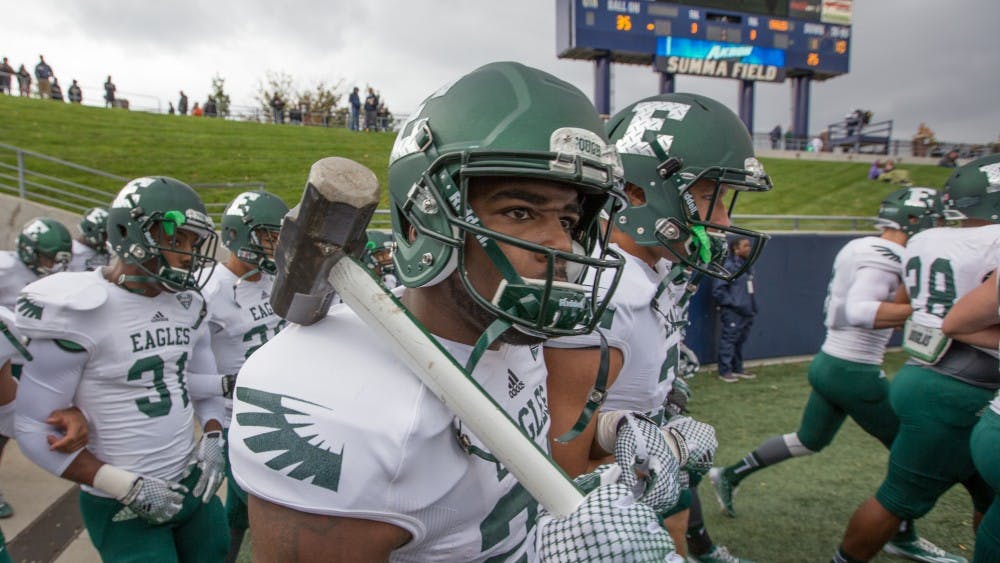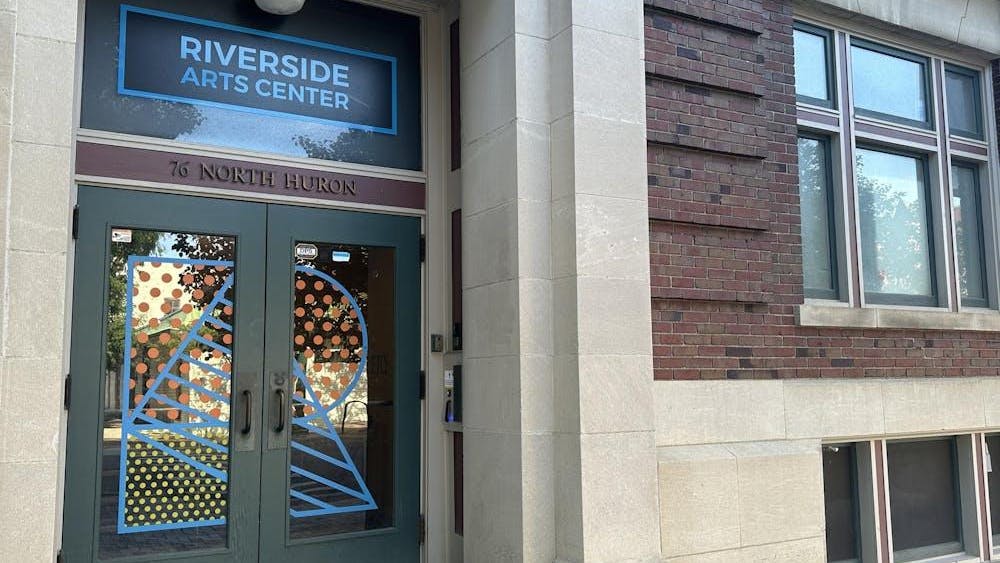Assistant Professor Ana Monteiro-Ferreira led the discussion on cultural and racial identity Thursday in the EMU Student Center. The talk was part of EMU’s Times Talk Readership Program, where a guest lecturer reflects on an article headline from The New York Times.
While Monteiro-Ferreira, who holds a Ph.D. in African-American Studies from Temple University, said race issues weren’t the focus of her presentation, it was necessary to touch upon them to frame the discussion.
“What I’m concerned with is how we perceive ourselves and our roles in society. How we build our identities. What are the causes of so much confusion and distress on one end,” Monteiro-Ferreira said.
She continued saying that the white privilege power structure has the ability to define reality for minorities, a term she dislikes because of the negative connotations associated with the word.
“It is the privilege to create institutions—legal, social, economic—that preserve exclusive access of whites to power and control. It is the privilege to determine patterns of perception, principles, values and practices of acceptance and exclusion. It is the privilege to hold the sense of entitlement that is dysfunctional and yet protected by law and mores.”
Monteiro-Ferreira also noted that white supremacy and racism are sustained as much by action as by inaction, and that privilege is inherited whether whites are aware of it or not.
“The privilege of making your voice heard and claim your rights. The privilege to define who you are, but especially who is the ‘other.’ The privilege to exclude, white people don’t think about it, they just have it and they use it.”
Monteiro-Ferreira said white privilege has created a global system of control, based on the disruptive effects of punishment and reward as a function of the color of
one’s skin.
“Eurocentrism has the epitome of a superior and ethical civilization in relation to which every other culture, people and civilization was to be measured as inferior and primitive and has created internalized perceptions of whiteness as metaphors of privilege, and negative perceptions of blackness as metaphors of exclusion.”
Kelsey Goodman, 20, an EMU double major in political science and African American studies, said knowing political history is necessary to understanding the world today.
“I think it’s essential for us to know like how we got to this point, especially
because you can’t move forward if you don’t know where you’ve been.”
Goodman, who is also the vice president of the EMU chapter of the NAACP, said people shouldn’t “talk about it, but not be about it,” and that there are plenty of activism organizations for people to join.
“We have to organize. We have to get motivated about something. Feel urgent about something and learn the ways that we can all work together,” she said.
Monteiro-Ferreira also mentioned that people need to be less individualistic and
embrace the value of community like African cultures. She urged a return to harmony where the ultimate need and responsibility of human beings is to improve the quality of community.
“People bought into the individualistic ideologies of this society and are forming materialistic values instead of the values of the community, in order to be able to grow together and become a whole and regain power.”
Terrance Finch, 22, an EMU political science major, said since the assassination of Malcolm X and Martin Luther King Jr. there has been a void of powerful black political leaders.
He said, “You take out the main political figureheads within the black community of that time and that era, it’s like, ‘Who’s going to do it now?’”
Monteiro-Ferreira said the best response is becoming a leader yourself.
“We cannot talk or think about just heroes,” Monteiro-Ferreira said. “What we have to talk about is the general population and the empowerment of the general population, [which] needs leaders, needs role models [and] needs activism.”
Finch said the Civil Rights Act seemed like little more than an attempt to placate African Americans outraged over the deaths of Malcolm and King, and the idea of equal opportunity is just that, an idea.
“It seems like somewhere along the line after the Civil Rights movement… African Americans kind of settled,” Finch said. “The only difference now is the racism and oppression is not as upfront as it used to be, it’s covert.”
Monteiro-Ferreira said concealed racism is much more dangerous than open hatred, “Because now you have nothing material to go against.”
Monteiro-Ferreira will continue to fight racism and injustice wherever she finds it, and called for all attendees to join her in the battle.
Student Government Director of Diversity Olivia Mateso Mbala-Nkanga said the March 15 Times Talk lecture, “The Sanctity of Marriage: What Can Kim Kardashian and The Bachelor Teach Us?” will feature EMU’s Lesbian, Gay, Bisexual and Transgender
Resource Center Program Coordinator Mary Larkin, at 5:30 p.m. in the Student Center,
room 301.
Times Talk lectures earn students Learning Beyond the Classroom credit needed for graduation, and are sponsored by EMU Student Government, the Division of Student Affairs and Enrollment Management and the Provost’s Office.
Visit www.emich.edu/studentgov for more information or call 734-487-1470.









